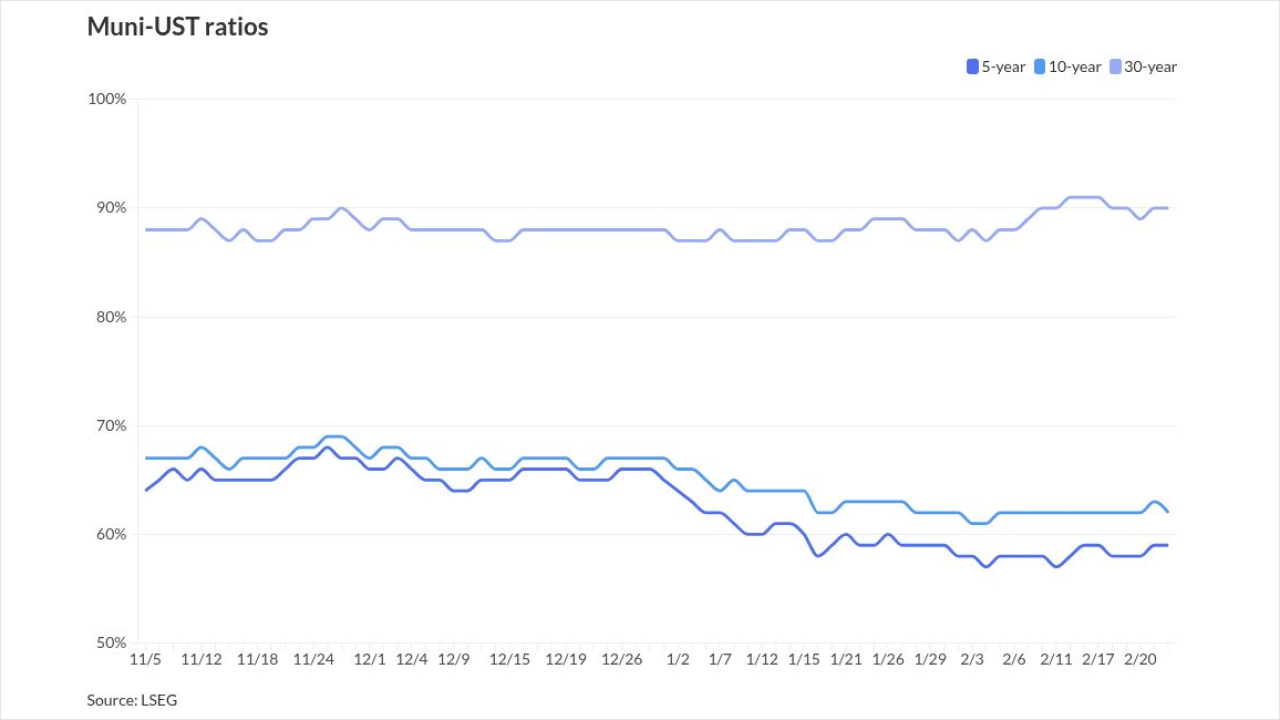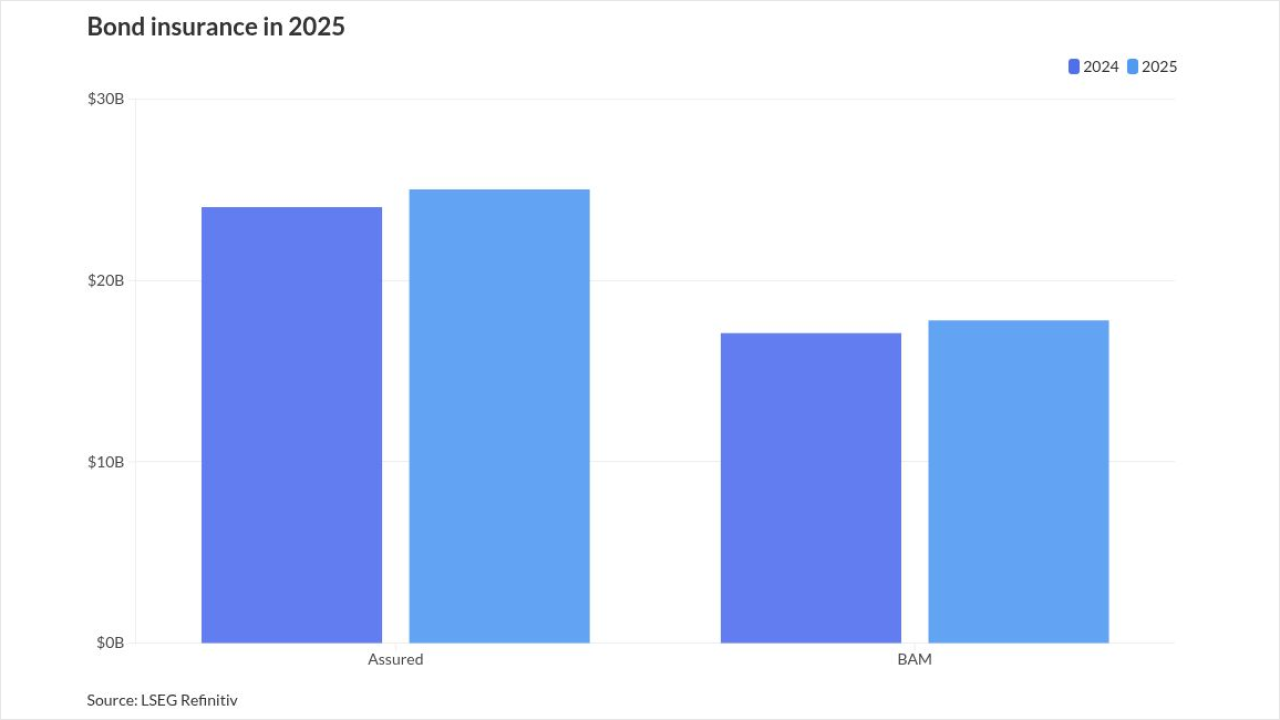BondLink has an ambitious goal -- creating investor websites for all 50,000 public finance issuers.
So far this year, the Boston-based online disclosure platform's progress toward that goal includes $10 million of new financing and landing the muni market's largest issuer as a client.

California's state government this month unveiled a new version of its
Franklin Templeton Investments, a big player in municipal bond funds, and Coatue Management, a technology sector hedge fund, provided the funding on Jan. 5. As part of that deal, Robert Stevenson, vice president, portfolio manager and research analyst for Franklin, will join BondLink’s board of directors.
Though creating websites for every issuer in the industry sounds like a heady goal, Colin MacNaught, the firm’s co-founder and chief executive, said it will result in more uniform information for investors.
“Disclosure is not only about producing a PDF of a financial report,” MacNaught said. “That data has to be disseminated to the bond market, and it should be shared with investors as it becomes public and done in a way that is easy for investors to consume.”
The current landscape makes it difficult for credit analysts who might be trying to do surveillance on 100 or 200 credits when every issuer has a different website and different reporting, MacNaught said.
“We are trying to streamline that and make life more efficient for investors,” he said.
MacNaught, a former Massachusetts deputy treasurer, created the company in 2016 with Chief Technology Officer Carl Query, who founded vacation-rental website FlipKey, of which TripAdvisor acquired a majority share in 2008.
“As an issuer, I struggled with the fact that there were no tools if the issuer wanted to provide more disclosure or to communicate with investors away from the bond sale,” MacNaught said. The Massachusetts treasurer's office was recognized during his time as deputy treasurer for the way it used technology to more directly communicate with investors.
During the tenure of MacNaught and then-treasurer Steven Grossman, Massachusetts received the 2013 Industry Contribution Award from the National Federation of Municipal Analysts for its investor relations website. The state’s debt program also won two Bond Buyer national Deal of the Year awards: for the accelerated bridge program in 2011 and MassDirect notes in 2014.
BondLink’s websites enable issuers to provide more frequent disclosure to investors, which besides accomplishing the Government Finance Officers Association’s best practices goals, also attracts a broader swath of investors, MacNaught said.
“Academic research shows that more timely disclosure can lower borrowing costs for issuers,” MacNaught said.
The websites provide an unlimited portal for issuers to share status updates on projects funded by bonds or quarterly cash reports, and where investors can sign up for custom alerts.
California’s new website contains more than 13,000 pages of data and documents. The state is the biggest issuer of municipal bonds, with more bonds outstanding than some of the companies in the Dow Industrial, MacNaught said. The state has $73.8 billion in outstanding long-term debt and $1.2 billion in outstanding commercial paper, according to a monthly debt report posted on
State Treasurer John Chiang, who is running for governor, has prioritized programs that create more transparency around government since he was elected as the state' controller in 2006. He said the investor website represents another method of accomplishing that goal.
“By making the ‘what, when and whys’ about the state’s finances, debt and economic outlook available with a simple mouse click, I hope to entice more investors to finance projects of critical importance to our state, from transportation and clean water to schools and affordable housing,” Chiang said in a statement Feb. 8 announcing the new website.
More data means more investors' eyes on California deals, which translates into better deals for taxpayers, Chiang said.
California became a BondLink client after a street corner conversation in San Francisco, said Tim Schaefer, deputy treasurer of public finance.

“We went through a period where we compared what BondLink could offer with what other technology companies could offer,” Schaefer said. “It was pretty clear that BondLink was in a unique class when it came to creating a platform for large sophisticated issuers.”
The California treasurer’s office is simply “trying to make this information as democratic as possible,” Schaefer said.
The ease and the availability of the information could draw in retail investors who had not previously considered California’s bonds as an investment, Schaefer said.
“The information has always been available, but it hasn’t been available in a particularly easy way,” Schaefer said. “This makes it easy to get the information without having to hunt and peck all over the internet.”
The website also meets the treasurer’s goal of building “enduring long-term relationships with people who are willing to lend California long-term money,” Schaefer said.
Enhanced disclosure is particularly helpful to investors in California, because of the complexities of all kinds of bond activity, notably school bonds, said James Spiotto, managing director at Chapman Strategic Advisors LLC in Chicago, whose MuniNet Guide used to give awards to the best issuer websites.
"Investor websites are especially helpful, especially in the municipal market where there are more 'Ma and Pa' [investors] than anywhere else,” Spiotto said.
The websites also include information not available in a central location elsewhere like limits on debt and taxation, increase in population, tax revenue and property values, Spiotto said.
"The strengths of the economy and the ability to repay [the bonds], the assessed value of properties, increases in population and businesses — the move-ins — are all facts that are helpful to prospective investors,” he said.
If cities and states have positive things to share – or even information that is not the most positive — it behooves them to get that information out, Spiotto said.
BondLink has about 20 people working out of Boston with clients “in every sector and nearly every state,” MacNaught said, adding that he expects that number to grow substantially this year.
The clients range from big issuers like Chicago and the California state government to the much smaller city of





